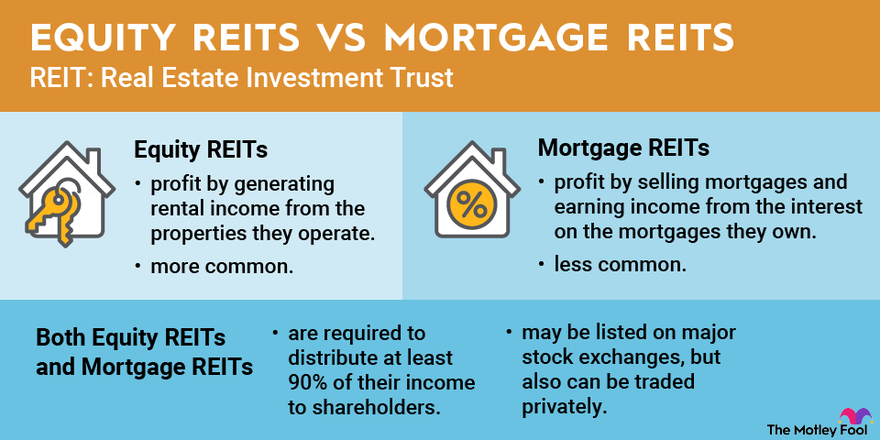Who Can Access Equity Release Mortgages and Why
Who Can Access Equity Release Mortgages and Why
Blog Article
A Comprehensive Overview to Choosing the Right Equity Release Mortgages for Your Demands
Selecting the right equity Release home mortgage is a considerable choice for numerous home owners. It includes recognizing various products and reviewing personal economic needs. With choices like life time mortgages and home reversion plans, the course can seem complicated. Trick considerations include rates of interest and versatility. As people navigate this landscape, evaluating prospective risks and advantages becomes essential. What elements should one prioritize to ensure the most effective outcome?
Understanding Equity Release Mortgages
Equity Release home loans provide a financial solution for homeowners aiming to access the worth locked in their residential or commercial properties. Mostly developed for individuals aged 55 and over, these home loans enable them to transform part of their home equity right into cash while proceeding to stay in their homes. Property owners can use these funds for different functions, such as supplementing retired life earnings, moneying home enhancements, or covering health care expenses. The core principle behind equity Release is that the funding is paid off upon the house owner's fatality or when they move into long-term treatment, at which aim the residential or commercial property is typically sold to settle the debt. This approach makes it possible for people to delight in the benefits of their home's worth without requiring to move. It is important for potential customers to understand the implications of equity Release, including potential influence on inheritance and continuous monetary dedications, prior to deciding.
Kinds Of Equity Release Products
When exploring equity Release products, it is essential to recognize the primary kinds offered. Lifetime home mortgages, home reversion plans, and drawdown strategies each offer unique functions and benefits. Reviewing these choices can assist individuals in making enlightened monetary choices regarding their property.
Life Time Mortgages Explained
Lifetime mortgages stand for one of the most common types of equity Release products offered to homeowners in retirement. This sort of mortgage permits people to borrow versus the worth of their home while retaining ownership. Commonly, the funding and interest accumulated are paid off when the homeowner passes away or relocates into long-lasting care. Debtors usually have the option to choose in between variable and fixed interest rates, in addition to whether to make month-to-month repayments or let the interest roll up. The amount offered to obtain generally relies on the homeowner's age and residential property worth. This economic solution can provide retirees with required funds for different requirements, including home enhancements or extra earnings, while allowing them to remain in their homes.
Home Reversion Schemes

Drawdown Program Summary
Drawdown strategies represent a versatile option within the spectrum of equity Release items, allowing home owners to access their home's worth as needed. These plans make it possible for individuals to Release a part of their home equity incrementally, instead than receiving a round figure upfront. This adaptability can be particularly helpful for managing finances gradually, as borrowers only pay rate of interest on the quantities they take out. Generally, drawdown plans include a pre-approved restriction, ensuring that property owners can access funds when needed without reapplying. Furthermore, this technique can aid minimize the influence of worsening passion, as much less cash is obtained. Generally, drawdown strategies accommodate those seeking monetary versatility while preserving control over their equity Release journey.
Trick Variables to Take Into Consideration
When picking an equity Release home loan, a number of essential elements warrant careful factor to consider. Rates of interest comparison, the loan-to-value ratio, and the adaptability of attributes used can considerably impact the suitability of an item. Examining these aspects will aid individuals make informed choices that line up with their financial objectives.
Rate Of Interest Contrast
Navigating the landscape of equity Release home mortgages needs careful factor to consider of rates of interest, which play a crucial function in determining the total expense of the loan. Consumers must contrast fixed and variable rates, as dealt with rates supply stability while variable prices can vary based upon market conditions. In addition, the timing of the rate of interest lock-in can significantly influence the total payment quantity. Potential consumers should additionally evaluate the interest rate (APR), which consists of numerous charges and prices connected with the mortgage. Comprehending the implications of different rate of interest will allow people to make enlightened decisions tailored to their monetary scenario. Ultimately, a complete evaluation of these factors can result in a lot more desirable equity Release outcomes.

Loan-to-Value Ratio
The loan-to-value (LTV) ratio serves as a vital statistics in the domain name of equity Release home loans, affecting both qualification and loaning capability. It is computed by separating the quantity of the financing by the evaluated worth of the property. Generally, a higher LTV proportion shows a better threat for lending institutions, which can cause more stringent loaning requirements. Many equity Release items have details LTV restrictions, usually established by the age of the debtor and the value of the home. LTV ratios typically vary from 20% to 60%, relying on these aspects. Understanding the implications of the LTV proportion is necessary for customers, as it directly influences the amount they can access while ensuring they continue hop over to here to be within risk-free borrowing restrictions.
Versatility and Features
Recognizing the versatility and features of equity Release home loans is essential for consumers seeking to optimize their monetary alternatives. Different items provide differing levels of adaptability, such as the capacity to make partial repayments or the choice to take a round figure versus regular withdrawals. Debtors should additionally consider the transportability of the mortgage, which enables them to move it to a new building if they choose to relocate. Additional functions like the capacity to include member of the family or the option for a no-negative-equity assurance can boost security and satisfaction. Inevitably, evaluating these aspects will certainly help customers choose a strategy that straightens with their long-term economic objectives and individual circumstances.
The Application Process
Just how does one browse the application procedure for equity Release home loans? The journey begins with reviewing qualification, which usually needs the candidate to be at the very least 55 years of ages and possess a substantial portion of their home. Next, individuals ought to gather needed documents, including proof of identity, home, and earnings valuation.Once prepared, applicants can approach a lender or broker concentrating on equity Release. A financial advisor might likewise offer valuable advice, making certain that all choices are considered. Following this, the candidate submits a formal application, which consists of an in-depth assessment of their economic circumstance and home details.The loan provider will after that conduct an assessment, which may entail a home assessment and discussions regarding the applicant's requirements and circumstances. The procedure culminates with an official offer, enabling the candidate to evaluate the terms prior to making a final choice. Clear interaction and understanding at each step are vital for a successful application.

Costs and costs Included
Countless costs and charges are related to equity Release home loans, and possible borrowers ought to recognize these financial considerations. There might be an application cost, which covers the lender's administration expenses. In addition, evaluation fees are typically needed to analyze the residential or commercial property's worth, and these can vary substantially based upon the property's size and location.Legal charges need to also be factored in, as debtors will certainly require a solicitor to browse the my explanation lawful elements of the equity Release process. Some lending institutions might impose early settlement costs if the home loan is paid off within a particular term.It is important for borrowers to thoroughly assess all expenses associated with an equity Release home loan, as they can impact the total worth of the equity being released. A clear understanding of these costs will enable people to make educated choices
Prospective Risks and Advantages
Equity Release home mortgages include a variety of prices and fees that can affect a customer's financial circumstance. They supply considerable advantages, such as access to funds without the demand to offer the home, permitting customers to make use of the cash for retired life, home enhancements, or to sustain relative. Possible risks exist, including the reduction of inheritance for beneficiaries, as the lending quantity plus passion must be paid off upon the consumer's death or move into long-lasting treatment. Additionally, the residential property's worth might not appreciate as expected, causing a bigger financial debt than anticipated. Customers may likewise encounter constraints on offering the residential property or relocating. If equity Release straightens with their lasting monetary objectives, it is necessary for people to very carefully evaluate these dangers against the advantages to establish. A thorough understanding of both aspects is essential for making an educated choice.
Concerns to Ask Before Committing
When taking into consideration an equity Release home loan, potential borrowers must ask themselves a number of important questions to guarantee they are making an informed decision. They must initially review their financial situation, including existing debts and future demands, to establish if equity Release appropriates. It is important to ask about the total expenses involved, consisting of charges, rate of interest, and any fines for early settlement. Debtors should additionally ask how equity Release will affect inheritance, as it may minimize the estate left for heirs. Comprehending the terms of the contract is important; consequently, questions pertaining to the flexibility of the strategy, such as the capacity to make payments or take out additional funds, ought to be resolved. Finally, prospective consumers ought to take into consideration the reputation of the loan provider and whether independent economic advice has been looked for to assure all aspects are completely comprehended.
Regularly Asked Inquiries
Can I Choose Just How Much Equity to Release?
People can usually pick just how much equity to Release from their property, yet the amount might be influenced by elements such as age, residential or commercial property worth, and lender needs - equity release mortgages. Consulting with a monetary expert is recommended
What Takes Place if Building Values Reduction?
If residential or commercial property values lower, the equity available for Release reduces, possibly leading to a circumstance where the superior mortgage exceeds the building worth. This circumstance may limit financial options and effect future preparation for homeowners.
Can I Still Move Home With Equity Release?
The capacity to relocate home with equity Release depends on the specific regards to the equity Release plan. Usually, numerous plans permit homeowners to move their equity Release to a new residential property, subject to authorization.
Just How Does Equity Release Influence My Inheritance?
Equity Release can greatly affect inheritance. By accessing home equity, the overall worth of an estate may reduce, possibly minimizing what beneficiaries get. It's vital for people to think about these implications when determining on equity Release choices.
Exist Any Age Limitations for Candidates?
Age constraints for equity Release applicants commonly require individuals to be at least 55 years of ages (equity release mortgages). Lenders might have added criteria, typically considering the candidate's look at here now monetary situation and the building's worth throughout the evaluation procedure
Final thought
In summary, picking the right equity Release home loan requires cautious examination of private monetary scenarios and goals. By comprehending the numerous item kinds, crucial elements, and associated prices, debtors can make educated choices. Furthermore, recognizing possible dangers and benefits is vital for long-term economic stability. Looking for independent monetary guidance can further improve the decision-making process, ensuring that the selected equity Release remedy lines up with the homeowner's general financial approach and future goals. Equity Release home loans give a monetary solution for house owners looking to access the value secured in their residential properties. Understanding the adaptability and features of equity Release home mortgages is vital for borrowers seeking to optimize their financial choices. Some lending institutions may impose very early repayment fees if the home mortgage is paid off within a specific term.It is necessary for borrowers to completely assess all costs associated with an equity Release home mortgage, as they can influence the overall value of the equity being released. The capacity to relocate home with equity Release depends on the specific terms of the equity Release plan. Looking for independent economic suggestions can further improve the decision-making process, making sure that the picked equity Release remedy aligns with the property owner's general monetary method and future desires.
Report this page